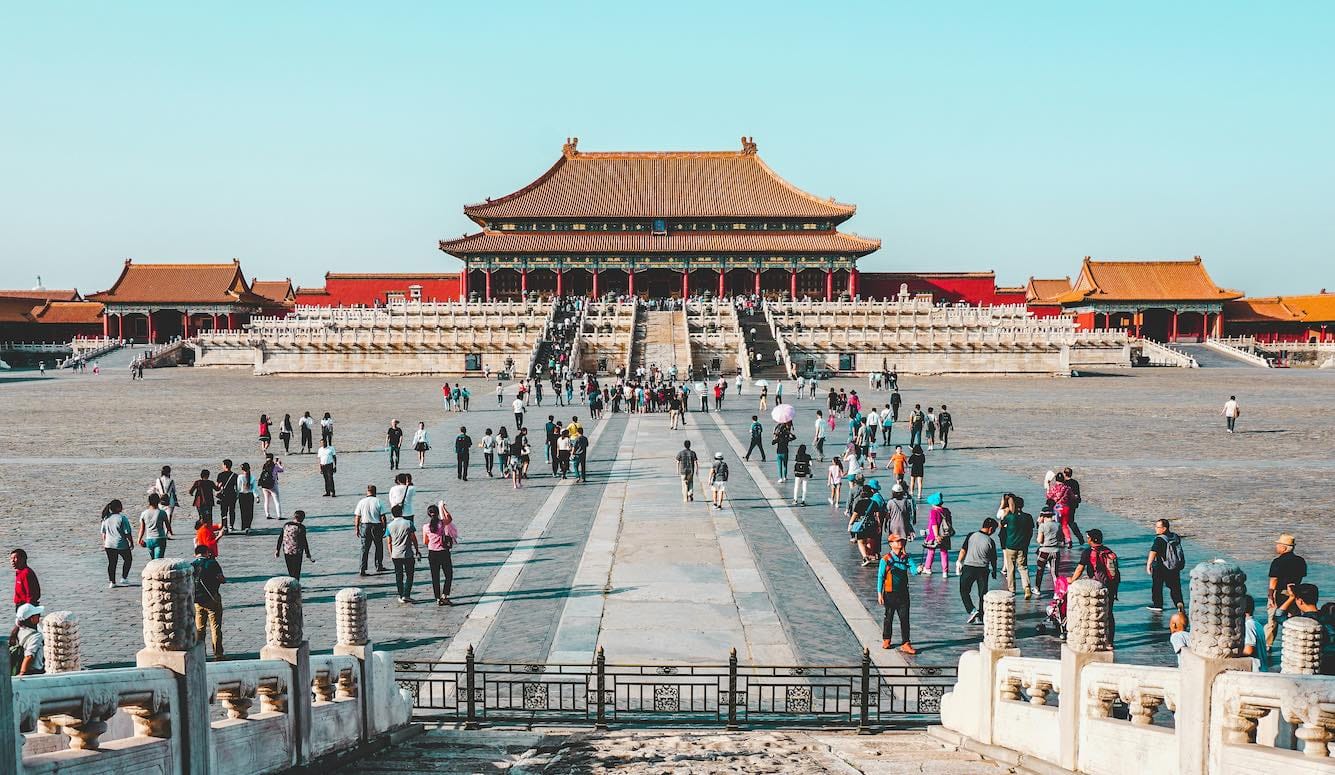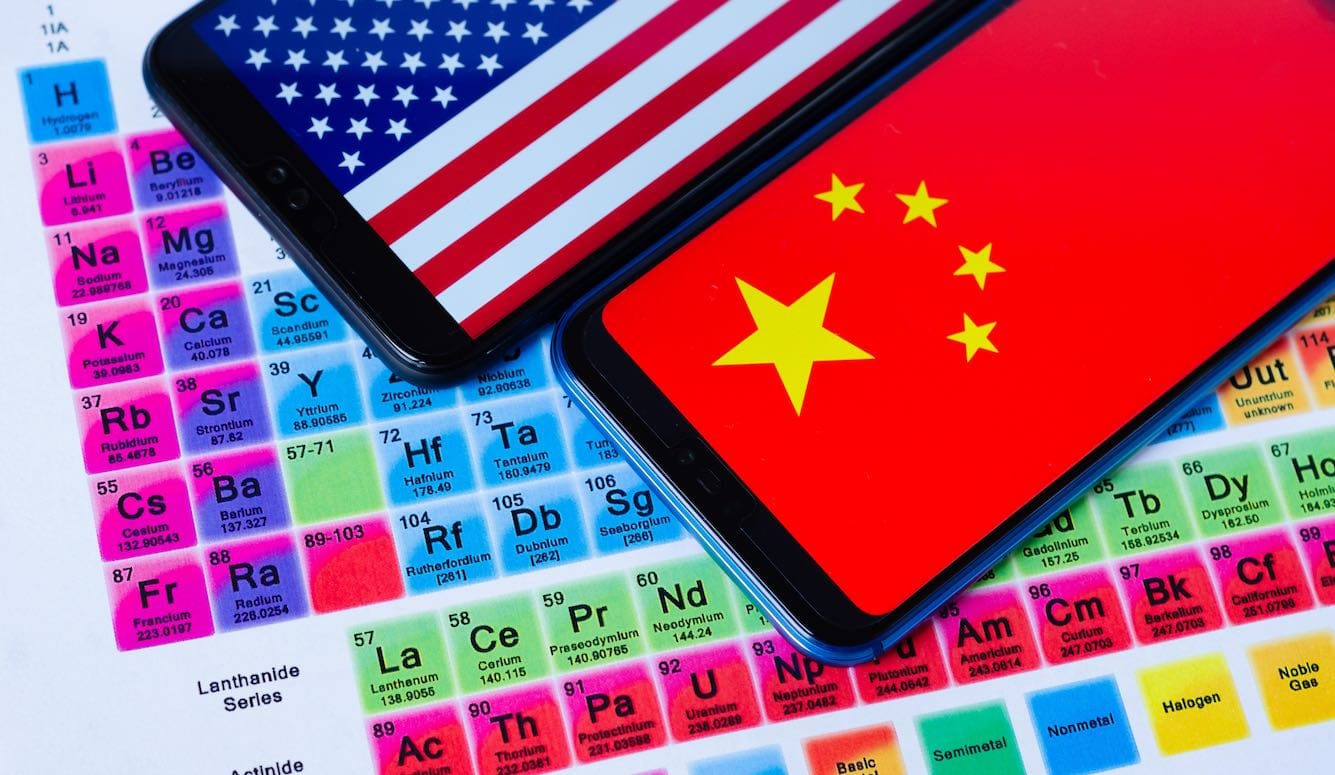Politics
Sarin Is Also Wrong on China
Aaron Sarin’s misreadings of my essay support my thesis and show why we need to think more carefully about China.

Editor’s note: On 28 July, Quillette published D. Marshall’s essay “Getting China Wrong.” On 14 August, we ran a critical rejoinder from Aaron Sarin titled “Getting China Right.” In this concluding instalment, Marshall defends his original essay and responds to Sarin’s criticisms.
It is Quillette’s policy to provide anyone criticised in our pages with a Right of Reply if they request it. Quillette does not necessarily endorse the views expressed in Right to Reply essays.
In my July article criticising American conservatives for misunderstanding China, I did not mention the pieces Aaron Sarin has written for Quillette, because I don’t know if he sees himself as a conservative and he seems to be British. But I thought of his work. He often brings interesting stories to light in an generally intelligent way. But in my view, his articles also tend to reflect the idée fixe my essay identified—a simplistically negative view that offers useful facts, but in a manner that makes it harder for Western societies to deal effectively with the complex challenge of modern China.
So, I welcome Sarin’s response, especially because his misreadings of my essay support my thesis and show why we need to think more carefully about China. Sarin accuses me of favouring the Beijing regime and defending the CCP’s “brutal COVID-19 policies,” of presenting China as a crime-free paradise, of holding conservatives “in contempt,” and of taking a “myopic” geopolitical view of Taiwan. I must plead “not guilty” to all these charges.

In 1976, when Chairman Mao died, various eulogies appeared in the American press, and a paper in Juneau, Alaska, published an angry letter from a fifteen-year-old boy complaining that journalists were “singing the praises” of a “mass-murderer.” Thirteen years later, after voting for Ronald Reagan, that boy stood in the crowd outside Chiang Kai-Shek Memorial Hall in Taipei, cheering the Democracy Movement across the Straights. Later, he wrote his doctoral dissertation on the post-Marxist beliefs of Yuan Zhiming, one of the leaders of that movement, then translated and published the story of his physical and intellectual journey.
The years since have not changed my thinking. Nothing would make me happier than to see China become more like Taiwan, tell the truth about its past, stop bothering neighbours, and take its heel off of Tibetans, Uyghurs, and other marginalised peoples. As a lifelong Republican and full-spectrum anti-Marxist, my criticisms of American conservatives are delivered in a spirit of authentic concern.
Yes, I did describe China as “one of the most moralistic societies on Earth—often obnoxiously so.” Sarin understood this to mean that China is a “moral exemplar.” but “moralistic” and “moral” do not mean the same thing, as my use of the word “obnoxious” ought to have indicated. A better synonym for “moralistic” would be “preachy”: slogans haunt citizens and visitors everywhere: “Don’t smoke!” “Live a low-carbon lifestyle!” “Elephants and humans—one world, one love!” And these directives are supplemented by the omnipresent Core Socialist Values campaign, devoted to the “moral education” of the populace.
Sarin solemnly reminds us that there is crime in China. Thanks for the warning! I have had my pocket picked in Beijing and Yunnan, have been been swindled, I have watched a male-female team steal a gold purse from a woman outside People’s Park in Shanghai, and I have sent one of my teachers home after he was attacked by a gang in Changsha’s bar district. I have also encountered crime in Japan and Taiwan, although nothing that matches the record of America’s capitol! Having travelled China since the Deng Era, I only point out that an upside to putting control freaks in charge includes waning rates of murder and drug abuse.
Sarin responds with a series of crime-blotter stories, including a story about a masturbating subway commuter in Shanghai. With two billion riders a year, it is not surprising to find incidents like that one on that network. While we are exchanging anecdotal evidence: a shapely young female conductor once gave me an unsolicited embrace after I exited a train in Hunan, a child once urinated a large puddle at my feet in Shandong, and a conductor in Guangdong once asked me not to conduct surveys on board. Those experiences were as traumatic as my own many months aboard Chinese trains got. My worst train experience was a single trip on the Bay Area Rapid Transport system heading into San Francisco. My anecdotes were meant to illustrate, not prove, those advantages I ascribed to China, which I also supported in other ways. If Sarin has data to correct UN figures, which show China with a fifth the murder rate of India, and less than a tenth that of the US, I am all ears.
My remarks about China’s COVID controls were criticised in an even more curious manner. Sarin did not dispute my claims, either about what conservatives have said or why they were mistaken (which was, after all, the subject of my article!). His only real criticism was to claim that I defended China’s COVID policies. I did not. I argued that they halted the spread of the initial wave. But I did not say that the CCP’s “brutal policy” (as he puts it) was correct. A friend of mine in Wuhan tells me she was locked in and had to survive on dried noodles for weeks. Some of her neighbours reportedly did not survive at all. Epidemics make for titillating moral philosophy, but I am no great fan of consequentialism. And since I find it plausible that lax security loosed the pandemic on us in the first place, and that the CCP seems to be lying about its origins, I’m even less inclined to offer the sweeping endorsement Sarin ascribes to me. But this is the sort of distinction I would like to see the Western press engage in more often about a country as complex as China.

I described a young woman in a poor part of China who had good prospects. Sarin again ignored the systematic evidence I offered in favour of the proposition that China is now a “middle income” country, and treated my anecdote as the sum of evidence given. He advised me to travel to Beijing to meet hard-working people in their sixties. He missed the irony that, when I began writing the Quillette article, I was working in Beijing, and over sixty. He says 94 million people past that age are still working, without mentioning 200 million who are not! I can introduce him to people in their seventies and eighties doing blue-collar work in Japan. Yes, China still has depressed regions, and many families are in dire straits. But an advantage of age can be a bit of perspective. Even in remote towns, you will find elderly people dancing in public squares in the evening. Ask them how their lives have changed since 1976.
Sarin says I “miss the point” because I ask whether Taiwan’s inhabitants are willing to defend themselves. He quotes Eisenhower’s old shibboleth comparing the island to an “unsinkable aircraft carrier,” and stresses the value of Taiwanese semiconductor plants since he apparently believes I had missed this bigger picture. But again, he did not tackle the much less-discussed question I raised of whether Taiwanese are ready to fight. In Eisenhower’s time, they were. In the 1980s, the island was full of tough young hombres who served two years each. Now, Sarin argues that regardless of what the locals want, America should hold it for the sake of “realpolitik,” since (quoting Niall Ferguson) “he who rules Taiwan rules the world.” This is just the sort of counterproductive and foolish rhetoric I am warning about. Throw those lines at Chinese regime supporters and opponents alike, and you might well unite them in disgust. And Americans might share their vexation. Sarin seems to be agreeing with Xi Jinping that what the Taiwanese want is of secondary importance.
I would hate to see Taiwan conquered. Ridges covered with cypress (which I have walked), dwarf bamboo, green snakes, thermal steam rising from ravines, lowlands hosting chip factories, and night markets with papaya milkshakes and oyster omelettes—it is one of the coolest places on Earth. But who authorised Aaron Sarin to volunteer those markets and factories as battlefields in the next world war, and American seamen to fight that war at the expense of a few carriers and possibly a few cities? This is the same politically obtuse “realpolitik” that got us into trouble in Vietnam.
I do not, however, advise weakness (and here, Sarin and I may agree). Teddy Roosevelt said one should “Talk softly, and carry a big stick.” Self-strengthening must come first, since no one respects a weak opponent. The West does need to muscle up. America and Japan should put finances in order. Then, America must rearm, working with ship-building allies like Japan and Korea, and cooperating with the UK, Ukraine, Israel, and others, drawing on respective strengths. Sarin offers some helpful thoughts here, such as this interesting progress report on the attempt by Western democracies to become less dependent on China’s rare earths. We should also develop new allies like India, without pushing too hard, given the nationalistic character of Modi’s political movement. We should recognise tariff-focused, over-the-top “America First” rhetoric as a form of self-harm. The West also needs to show respect for its own history. When dealing with nations that take pride in their ancient heritage like China, India, and Iran, it is folly to slump around in sackcloth and ashes because our ancestors were human.

Still (and here Sarin and I may part company again), I also think we should “talk softly.” Bellicose and simplistic criticism of China is counterproductive (and often factually mistaken, I showed). For America needs Han people (90–95 percent of Chinese, depending how you count) as allies. And a lot of what Western critics say about China sounds ridiculous and irritating to most Han. I ate Korean with a former colleague in Qingdao. He had graduated from a major US university, and told me that he was growing more conservative in the American sense. But he cursed when I mentioned the hostility some conservatives feel towards China. “They can go to hell!” he said. “Talk like that, and I’ll have to take the government’s side.”
“Talking softly” does not mean refraining from criticising China when it mistreats Uyghurs or Tibetans, steals IP, threatens its neighbours, or when its companies export fentanyl precursors. But it does mean recognising the good as well as the bad, and avoiding zero-sum or dystopian thinking. When civilisations clash, both sides tend to attack minorities first. Even if our goal were merely to help the Uyghurs, rather than to, say, avoid a nuclear winter, demonising China may do more harm than good. And chatter about new “cold wars” may set opposing clans into a global retributive doom loop from which Furies and cockroaches emerge the only winners. So, don’t back the CCP into a corner rhetorically, and be willing to concede Western sins at similar stages of development (Wounded Knee, Mexican and Opium Wars, the Company Raj).
Americans should also appeal to Chinese patriotism by reminding Chinese of the good the US has done China in the past. (Some day, I hope to explain why, without the other, it is likely that neither the United States nor modern China would exist as independent nations.) While the self-strengthening of democracies should give the CCP an incentive to behave, our rhetoric must point a path to peace. The Chinese do not really admire Putin, Kim, Pakistani generals, or Iranian mullahs. They support them because, frankly, all the good allies were taken. The world cannot afford another world war, and I think we may avoid it, while keeping our self-respect, if we elect to follow a more nuanced path forward in dealing with a dangerous, often cruel, but not uniquely evil regime across the many oceans that divide us.






